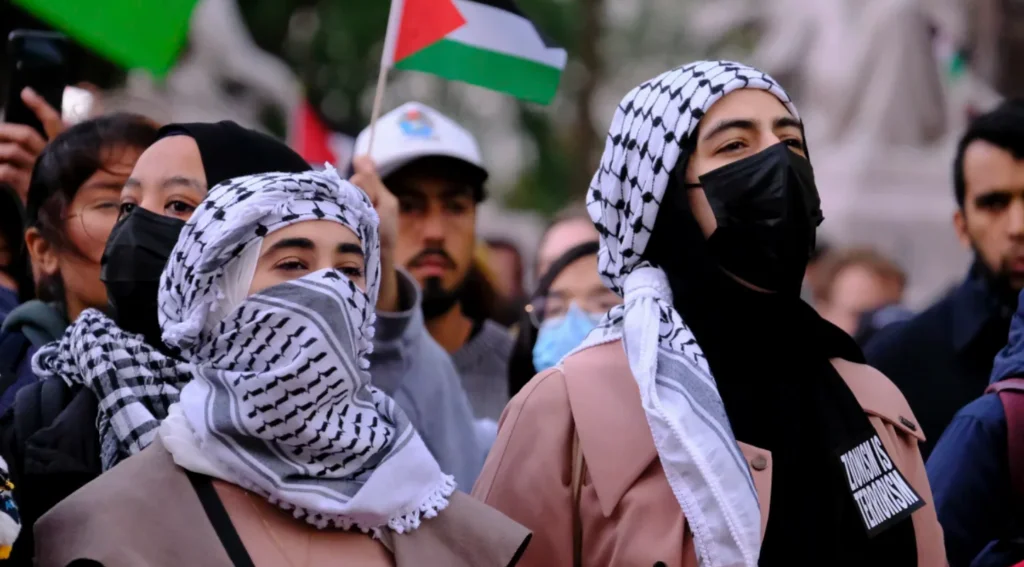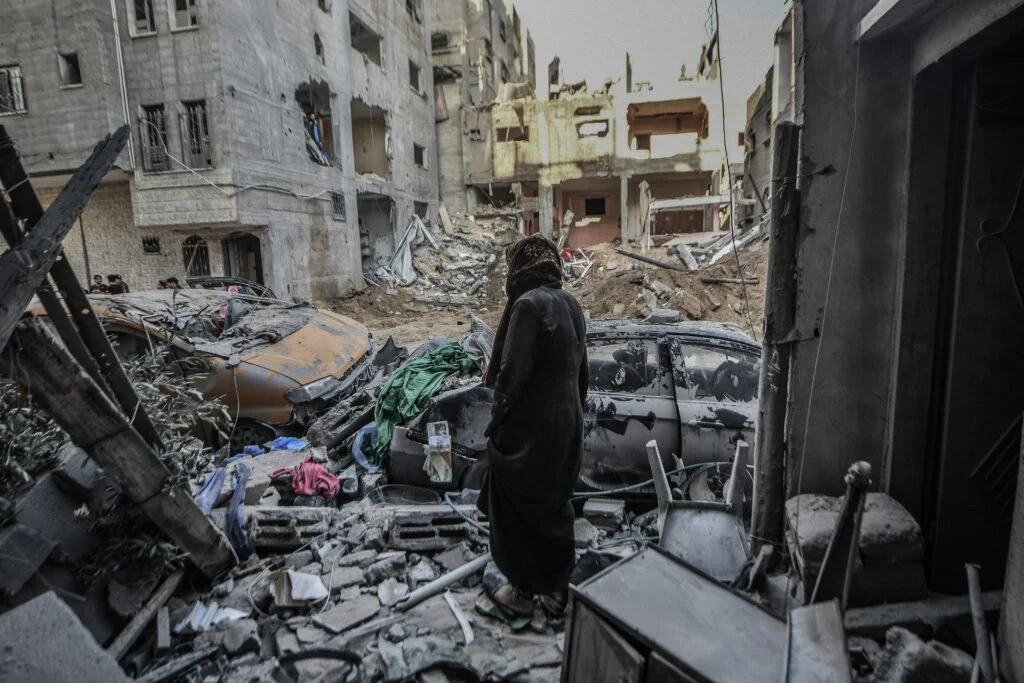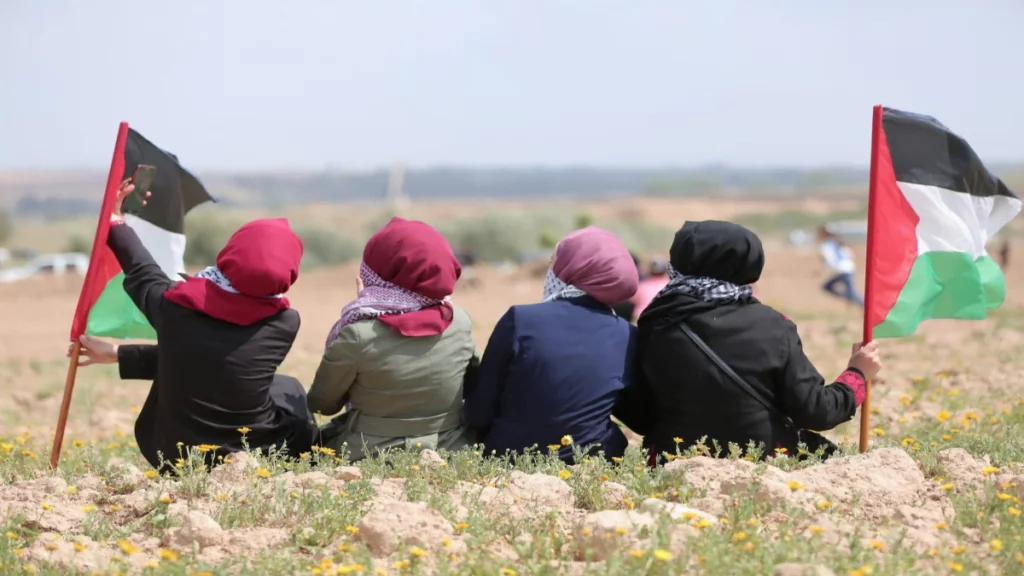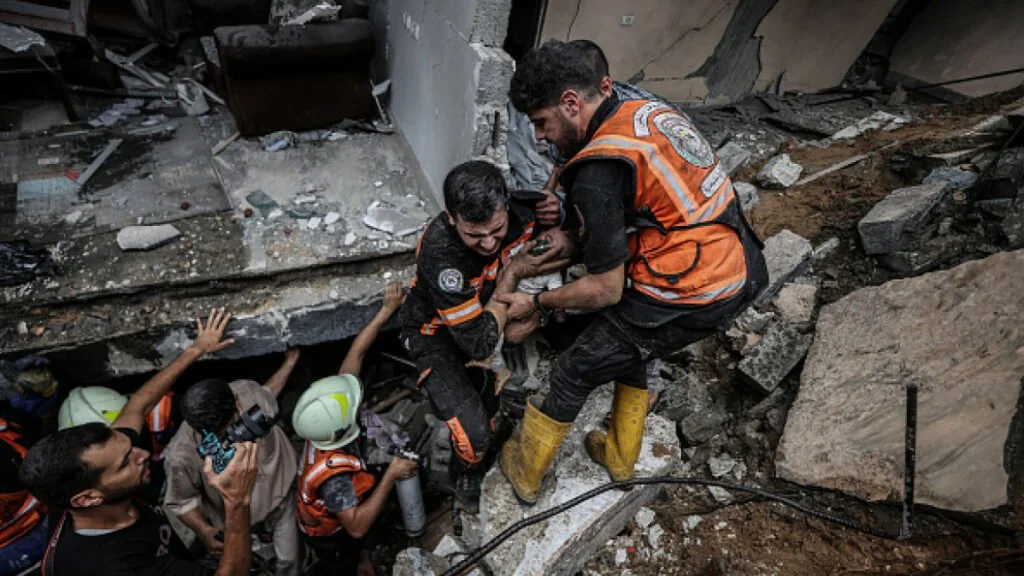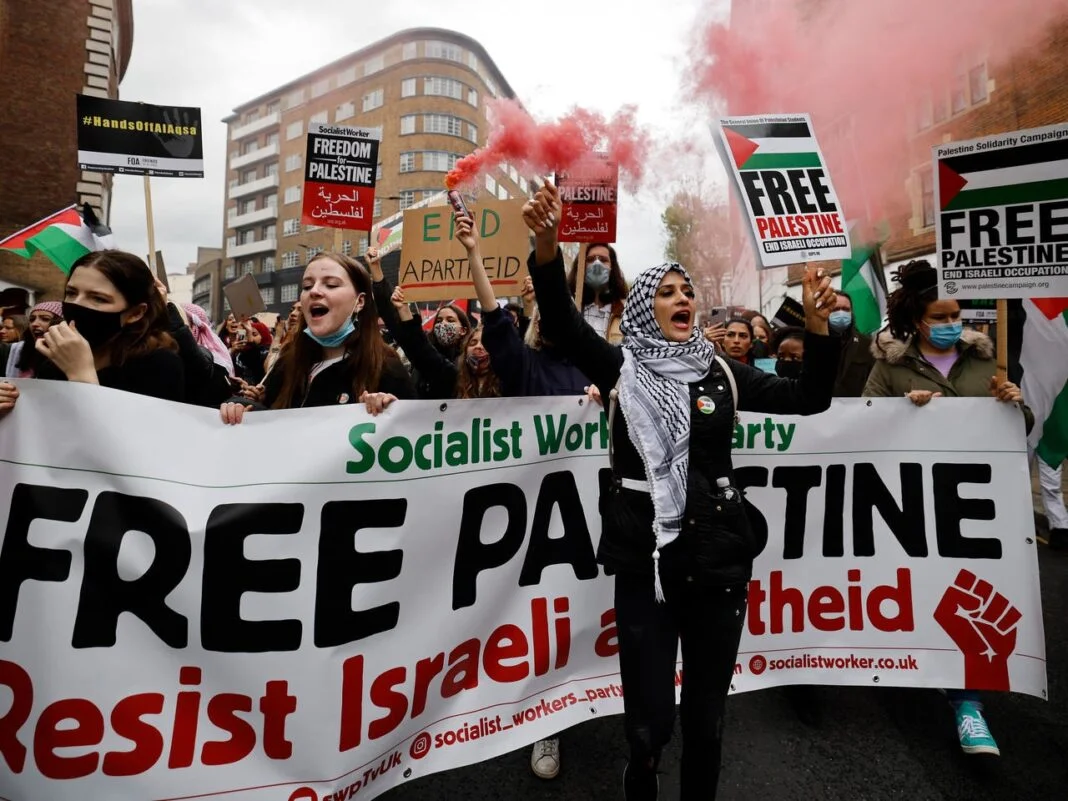As violence escalates and the humanitarian crisis in Palestine deepens, the international community must confront why peace remains so elusive. Despite numerous diplomatic efforts, impassioned speeches, and widespread protests, violence continues unabated. The ongoing genocide in Palestine highlights that male-dominated leadership and diplomacy alone are insufficient for achieving lasting peace. A policy which prioritises inclusivity, human rights, and equity, is essential for resolving conflicts and building sustainable peace and security.
Historical context and diplomatic failures in Palestine
Genocide, a word coined by Raphael Lemkin in 1944, denotes one community’s targeted destruction of another based on identity markers like nationality, race, ethnicity or religion. It is an act of dominance and destruction. The UN Genocide Convention of 1948 condemns such acts. In the case of Palestine, this genocide has escalated into full-scale warfare, leaving devastation in its wake. Israeli Prime Minister Benjamin Netanyahu declared “We are at war“ after Hamas retaliated by attacking Israel which had colonised Palestine for decades. The ongoing wrath of atrocities led to bloodshed, what with the recent attack on the Rafah camp and unaccounted losses, with hospitals and institutions of education, religion and refuge being attacked inhumanely.
The devastating toll with over 30,000 individuals losing their lives since October 7th and nearly 1.9 million Palestinians displaced is frightening. Among the casualties, women, children, and newborns bear the brunt of the violence, accounting for approximately 70% of the victims, suffering disproportionately in the ongoing crisis.
The UN reports states that 9,000 women have perished in Palestine since October, with 63 women losing their lives each day. Mothers, responsible for sourcing food, now face acute food insecurity, with 84% reporting reduced intake. Despite their resilience, women’s organisations receive less than 1% of crucial funding, hindering their ability to address the dire needs of Gazan families.
In the tumult of the humanitarian crisis, amidst the chaos of the battlefield and the urgency of saving lives, there are stories which are often overlooked. Among these tales lie the narratives of women and their bodies.
In the tumult of the humanitarian crisis, amidst the chaos of the battlefield and the urgency of saving lives, there are stories which are often overlooked.
Picture this: a young woman in Palestine, her belly swollen with life, her heart heavy with the uncertainty of tomorrow, finds herself caught in the crossfire. Bullets whizzing past, bombs echoing in the distance, she clutches her belly, seeking refuge amidst the chaos. Yet, in the eyes of many, her plight is not deemed urgent. Her condition—pregnancy—is seen as secondary to the immediate needs. But why does her story fade into the background? Why does the urgency of her situation not resonate as loudly as the roar of cannons?
Let us imagine again: Amidst chaos in Palestine, the pain that menstruators endure during their menstrual cycles often becomes a silent burden, overshadowed by more visible emergencies. But make no mistake, this pain is real, visceral, and profound. Young menstruators and their bodies, already weary from the strain of hunger and fear, are now wracked with the cramps of menstruation. Each wave of pain is a reminder of their vulnerability, their femininity, in a world torn apart by violence.
Yet, in the hierarchy of needs, where food, water, and shelter reign supreme, the lack of access to basic amenities like sanitary pads is often brushed aside. But for these menstruators, forced to bleed in silence, the absence of such essentials only exacerbates their suffering. Why, then, does the world turn a blind eye to their plight? Why do we overlook the urgency that before crisis erupts, there are myriad underlying issues and challenges that demand understanding and resolution? It is a human cry at large. Traditional diplomatic measures, including United Nations resolutions, failed to bring about a meaningful ceasefire, highlighting the limitations of conventional approaches to conflict resolution.
The impact of diplomatic language
Global leaders’ rhetoric significantly influenced the narrative surrounding this global challenge. While some countries called for a ceasefire, others refrained, aligning with Israel’s stance on Hamas’s elimination. This linguistic division reflected deeper geopolitical alignments, exacerbating tensions and hindering peace efforts. Leaders like Biden and Netanyahu framed the conflict around Israel’s right to self-defence post the attack, despite criticisms from international legal experts.
Since the start of this crisis, it’s notable that men hold positions of power across the spectrum, from leaders of nations directly involved to those in allied countries like the USA, Russia, and Iran, as well as within the United Nations Permanent Five and its leadership.
Since the start of this crisis, it’s notable that men hold positions of power across the spectrum, from leaders of nations directly involved to those in allied countries like the USA, Russia, and Iran, as well as within the United Nations Permanent Five and its leadership. This observation prompts reflection on the way power is wielded both in times of conflict and in diplomatic efforts. Terms like “need of the hour” and “issue of sovereignty” often dominate the discourse, but there’s a growing call within feminist diplomacy and foreign policy for decisions to be guided by principles of diversity, inclusivity, equality, and ultimately, the pursuit of peace and security.
The roots of current genocide extend beyond recent violence, encompassing decades of occupation, settlement expansion, and displacement. UN Secretary-General Antonio Guterres emphasised the historical context, citing continuous turmoil since 1948 and the blockade of Gaza since 2007, exacerbating poverty and suffering for its residents. Voices from Palestine, like that of Tala Herzallah, express frustration over the violation of international laws with impunity. The international response to the conflict has been polarised, with some countries severing diplomatic ties with Israel and widespread protests supporting Palestine erupting worldwide. However, the persistent violence underscores the need for a more inclusive approach to peacebuilding.
The rhetoric from leaders of the parties involved in the mass killings, invoking historical narratives and employing dehumanising language, has entrenched a narrative of existential struggle, rendering reconciliation increasingly elusive. Meanwhile, global leaders’ incapability has exacerbated the situation in Palestine, failing to effectively address the atrocities or bring about meaningful intervention.
The need for feminist diplomacy in the case of Palestine
The persistent conflicts we witness today underscore a critical flaw in traditional, male-dominated leadership and diplomacy. Embracing a feminist approach to diplomacy, which prioritises inclusivity and human security, offers a path towards sustainable peacebuilding. Women and marginalised groups bring invaluable perspectives that are essential for crafting holistic solutions to complex conflicts, as exemplified by the ongoing crisis in Palestine.
Women and marginalised groups bring invaluable perspectives that are essential for crafting holistic solutions to complex conflicts, as exemplified by the ongoing crisis in Palestine.
Countries like Sweden (first to introduce but withdrew in 2022.), Canada, Mexico, Germany, Luxembourg and many others have already taken steps to integrate gender equality into their feminist foreign policies, recognising its pivotal role in promoting peace. These efforts extend beyond mere gender mainstreaming to encompass concrete policy actions aimed at fostering accountability and inclusivity.
The current crisis in Palestine not only threatens lives but also violates fundamental human rights, including reproductive freedom. Women bear a disproportionate burden in conflict situations, facing dire conditions such as unhygienic births, maternal and natal mortality, and a lack of basic resources and facilities. Moreover, the crisis exacerbates women’s ill-health, both during and outside of pregnancy, contributing to issues like miscarriage, inadequate menstrual hygiene, and sexual assault.
Addressing these multifaceted challenges requires a comprehensive approach that integrates women’s health into decision-making processes. Governments committed to inclusive diplomacy must advocate for women’s rights, representation, and access to resources. By prioritising human rights and the inclusion of marginalised groups, we can foster genuine understanding and work towards sustainable solutions. Ultimately, achieving lasting peace in Palestine demands a shift towards a more inclusive and gender-aware approach to foreign policy. By embracing principles of feminist diplomacy, we can break the cycle of violence and build a future that respects the rights and dignity of all individuals.
About the author(s)
Mansi Malhotra is a Doctoral researcher currently working on Swedish Feminist Foreign Policy at Central Government University, Chhattisgarh, India. She has completed her graduation and post-graduation from Gargi College and Daulat Ram College (respectively), University of Delhi. She is currently working on Feminist methodologies in international relations. Her work experiences include Research Intern at Human Rights commission, Government of India and Ministry of External Affairs, GOI.
